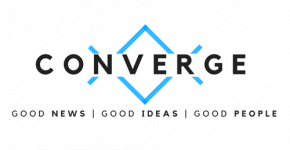You don’t have much of a say when it comes to deciding how fast your business operates. Your company exists in a broader system of companies, and it’s the cumulative speed that you need to be up to date with. If your industry is moving ahead at a fast pace — and what industry isn’t these days? — then you need to ensure that you’re also moving things along quickly, too. If you’re currently moving too slowly, then take a look at incorporating some of the changes that we outline below.]
Know Where You’re Going
You can always do things faster, but that won’t always be better. If you want to work efficiently and speedy, then you need to have a sense of where you’re trying to get to. It’s much easier to accelerate your productivity and output if you have a clear idea of where you’re trying to take your business. Ideally, you will have established a long-term goal in the early days of your business, but it’s not the end of the world if you didn’t. Think ahead, and make a plan for one, two, and five years down the line.
Drop the Deadwood
Many companies fall into the trap of thinking that they have to offer more, have to expand, have to do more than they originally planned. This is not the case! In many cases, trying to offer products and services that you don’t really know is the wrong approach. Instead of diversifying the business, they simply slow it down. It’s better to get rid of the ones that aren’t really pushing your company forward, and instead, stay focused on your core operations.
Get The Right Systems In Place
It’s not so much how quickly you can work on the individual tasks of your company that counts, but how quickly you can bring these various aspects together. Unless you have the right systems in place, you might find that you and your employees are spending far too much trying to get your various systems to talk to one another. You may even spend a significant chunk of your time simply re-entering information into various platforms. All these things will slow you down! As such, it’s best to work with a company that can provide systems integration. Once implemented, your staff will be able to focus on the tasks that push the business forward, rather than wasting their energy on time-consuming tasks.
Releasing the Employee
Every company works best when the full power of the employees have been unleashed. If you haven’t yet got the working environment that brings out the best of your workers, then you won’t be growing as quickly as you could be. To do this, you need to put the pieces in place that’ll allow them to work at the best. That means providing spaces and time for collaborative projects, and creating an office — and tools — that they need to work well. Even a few subtle changes, such as changing the lighting and working hours, can have a big impact.






[…] It’s always wise to keep an open line of communication to lead to the best professional integrity. This means being open to anyone who is involved in the business. So, this means that everyone should either have access to you, or someone in a higher job role such as a supervisor or line manager as at the end of the day it’s unlikely that if you’re running a large company you will deal directly with every single employee. Any of their concerns should be addressed immediately and an outcome should reach every single time. Having the correct lines of communication is not just ethical; it’s part of making employees happy and it will help with employee turnover. If there is a lack of communication, it’s easy for businesses to get off track and lose that success. […]